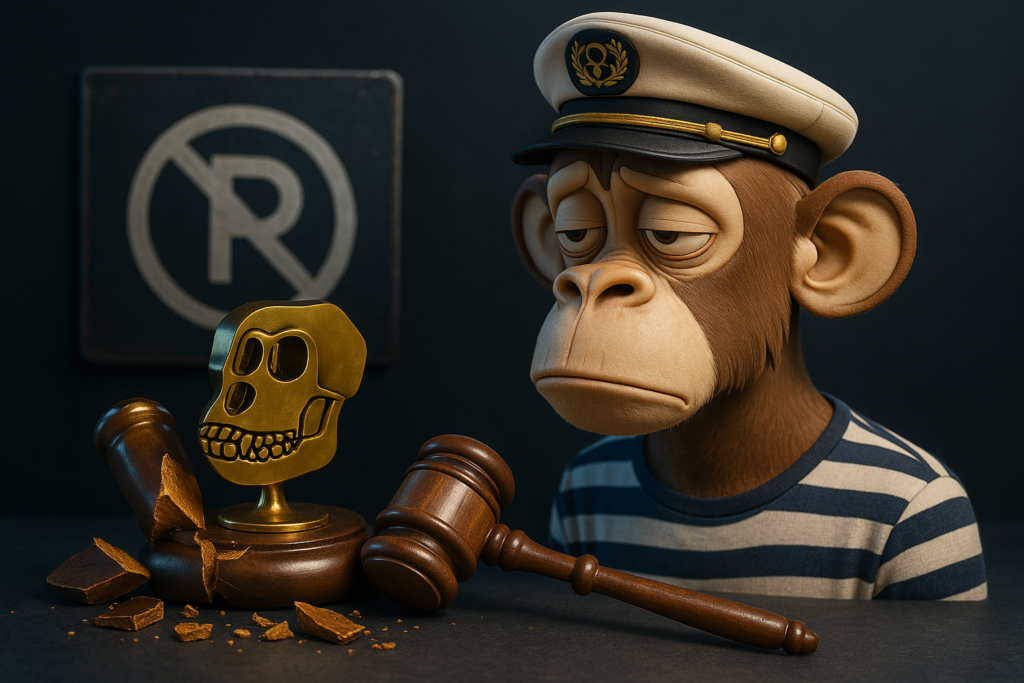In a major legal development, Yuga Labs—the creator of the Bored Ape Yacht Club NFT collection—has had its $9 million court victory overturned, following a decision by the U.S. Court of Appeals for the Ninth Circuit.
Court Orders New Trial in Bored Ape Trademark Case
The case centers around Yuga Labs’ 2022 lawsuit against digital artist Ryder Ripps and Jeremy Cahen, creators of the RR/BAYC NFT collection. Yuga claimed the satirical NFTs were infringing on its intellectual property and misleading consumers. A district court initially ruled in Yuga’s favor, awarding over $8 million in damages.
However, the appellate court has now reversed that decision, stating:
Yuga Labs must better demonstrate trademark infringement under the legal standard required to prove consumer confusion.
RR/BAYC NFTs Argued to Be Satirical, Not Misleading
Ripps and Cahen argued that their RR/BAYC project was a form of satire and protest art, criticizing what they allege are problematic elements within the original BAYC ecosystem. The images used in the RR/BAYC collection were visually similar, which led Yuga to sue for trademark infringement and cybersquatting.
While the district court had found that the visual resemblance likely caused confusion, the appeals court emphasized that artistic or satirical works require a stricter threshold to prove that the intent was to mislead.
The new ruling does not say Yuga lacks trademark rights—it confirms Yuga’s priority of use—but asserts that confusion must be convincingly demonstrated in a retrial.
Implications for NFT Copyright and Satire
This case is now being viewed as a landmark for how courts handle NFT-related intellectual property, especially when satire and digital art intersect with established brands.
The outcome of the retrial could set critical precedent for the NFT industry, especially regarding the use of parody and consumer confusion in decentralized digital assets.
What’s Next for Yuga Labs?
Yuga Labs must now return to court and present stronger evidence that the RR/BAYC NFTs misled buyers into thinking they were affiliated with the official BAYC project. The retrial will likely focus on consumer perception, artistic intent, and market behavior.
Until then, the $9 million judgment stands vacated, and the legal battle over NFT trademarks remains unresolved.
Disclaimer
This content is for informational purposes only and does not constitute financial, investment, or legal advice. Cryptocurrency trading involves risk and may result in financial loss.

